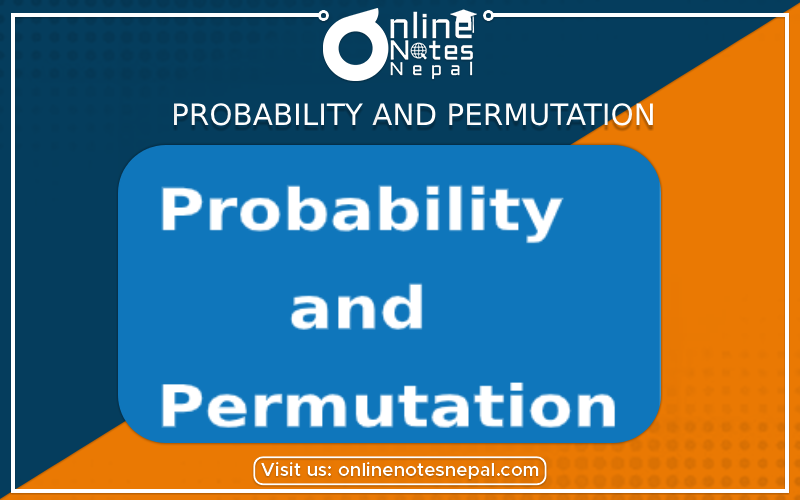Published by: Nuru
Published date: 18 Jun 2021

The probability is a numerical measure of the likelihood or chances that a specific event will occur or not. It is denoted by 'P' takes a value between 0 and 1 inclusively i.e.  .
.
For an impossible event, P takes value O.
For a sure event, P takes value 1.
Example:
The probability of getting a face seven in a single roll of dice is zero, and the probability of that of dying a person is 1.
The process in which when performed results differ from possible outcomes is called an experiment.
1. Random Experiment
When performing an experiment repeatedly under same condition if the result obtained is not less unique, but may anyone of the possible outcomes then the experiment is known as a random experiment.
2. Trial and Error
Performing a random experiment is called a trial. And, the outcome or combination of the outcome of an experiment is called the event.
The number of cases which include all possible outcome of a random experiment is said to be exhaustive cases for the experiment cases.
For example: In tossing the coin once, the exhaustive number of cases are head and tail ie. 2
1. Equally likely Cases
When performing an experiment, any one of the possible outcomes may occur but no one case can be expected to occur more than other cases, which is said to be equally likely cases.
For example: Tossing an unbiased coin head and tail are equally likely cases.
2. Mutually Exclusive Cases
Two or more events are said to be mutually exclusive cases if their simultaneous occurrence is not possible.
For example: If a coin is tossed either head or tail will appear so head and tail are mutually exclusive cases.
3. Favorable Cases
The cases for the random experiment cases which initial the happening of an event are known as favorable cases to that event.
For Example: In throwing a dice, the cases favorable to getting an odd number are three (1,3,5).
4. Independent Cases
Two events are said to be independent if the occurrence of one event doesn't affect the occurrence of other events.
For example: If a coin or dice are thrown, the coin turning its head will not affect getting '1' in the dice.
Permutation of a set of an object means the arrangement of the object in some order.
The total number of permutation of a set of the different object taken 'r' at a time is:
pic
A combination of a set of an object means the selection of objects without regard to any order of arrangement.
The total number of selection of a set of an object taken 'r' at a time is denoted by:
pic